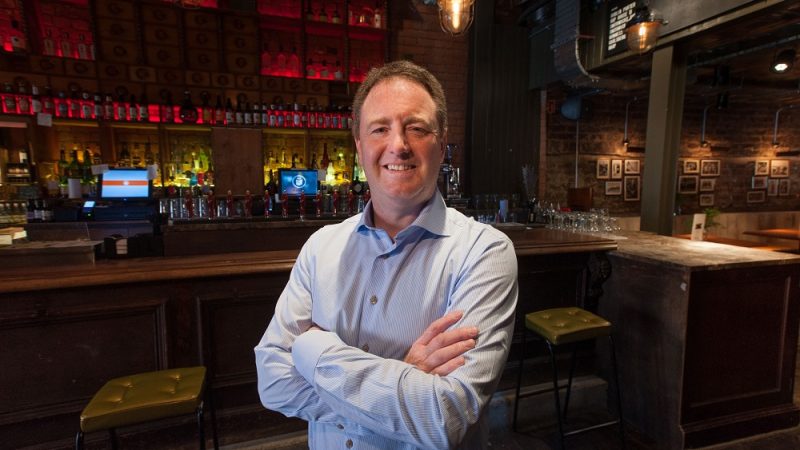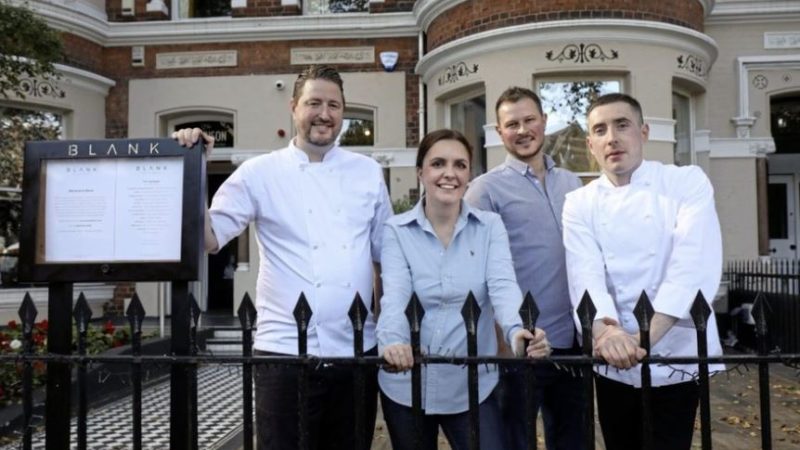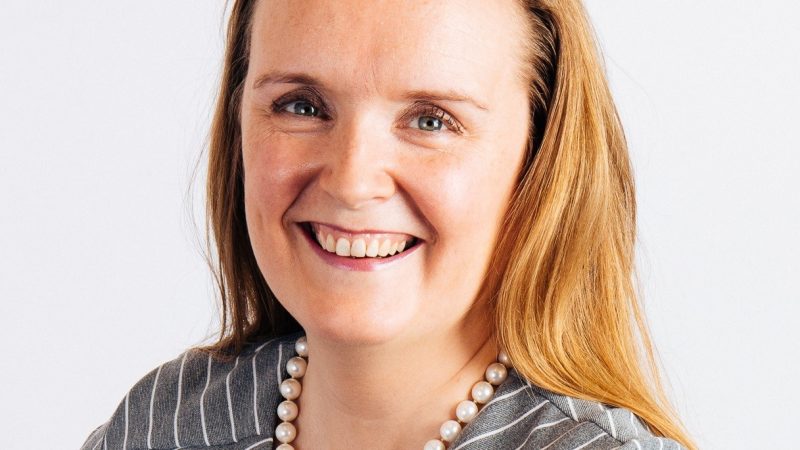In good hands

Jorge Lopes believes that survival is not about strength, but adaptability. It’s an ethos that’s helped him and Diageo NI put their best foot forward despite an unpredictable environment…
By its own admission, 2017 was a “turnaround” year for Diageo. Forced to negotiate a downturn in emerging markets where it had already invested heavily and stymied by the fickle nature of consumers in North America, its largest single market, the world’s biggest distiller began the year with a mountain to climb.
Diageo, however, is nothing if not reliable and by July, it became clear that the reforming zeal of chief executive, Ivan Menezes had found its mark. The company revealed a 2.8 per cent rise in organic net sales in North America and a three per cent increase in pre-exceptional profits to £3bn.
It was, said Menezes, “a good set of results” that reflected work done to strengthen Diageo’s big brands through marketing and innovation and a deliberate focus on extending the producer’s global distribution network.
Having spent three busy years focused on enhancing Diageo’s ability to respond more effectively to shifts in consumer preference, Menezes said he was confident of even stronger results in 2018.
Not surprisingly, that overt focus on sustained growth is evident here in Northern Ireland as well, where country director, Jorge Lopes, told LCN just before Christmas that he considered it the “key objective” of 2018. Indicating that “big plans” where in place locally for the new year, Lopes added:
“We currently have a very strong draught and packed beer business, premium spirits are doing very well for us and our new innovation pipeline of products, such as Roe & Co whiskey and Gordon’s pink gin, keep us on our toes. We’re very excited about what 2018 will bring us.”
Lopes is no stranger to the challenges presented by a difficult market. When he arrived in Northern Ireland in 2013, he found a post-recessionary environment still firmly in recovery mode with poorer-than-expected sales performance in the key domestic beer category. He faced a daunting task, but speaking to LCN at that time, the new country director focused exclusively on the potential of Diageo’s Irish operations and spoke enthusiastically about plans for a new approach to business in Northern Ireland.
True to his word, Lopes has steered the local division through four years of transformational growth and when he met LCN for his annual catch-up recently, he said that 2017 had been a “really positive” year for the business in Ireland:
“We are in good growth,” he declared. “We’re gaining market share and beating plan. The future is certainly bright and we are now focused on our ambition to grow our commercial sales in Northern Ireland and to continue to build our reputation here as a responsible employer and a major exporter.”

Like most in business, however, Diageo NI is vulnerable to the ebb and flow of political and economic developments and Lopes remains acutely aware of the impact on the business of a range of current issues, including Brexit, a chronic shortage of skilled staff in the hospitality trade and the continuing lack of a working Executive here in Northern Ireland.
“There will be challenges in any business”, he acknowledges, “but take Brexit, for example. As a global company we’re taking it in our stride and we remain confident that we can manage through Brexit without significant disruption to our business.
“That said, Diageo is an island-of-Ireland-company with a highly integrated supply chain that produces world-famous products such as Guinness and Baileys. We have four supply sites across the island and make 18,000 border crossings a year…As such, we clearly want a border deal that minimises disruption to logistics and supply chains and allows us to move our highly-skilled employees to where they are needed.
“A hard border with customs checks and tariffs on goods between Northern Ireland and the Republic would not be welcomed by Diageo,” says Lopes.
Undoubtedly, it’s a situation not helped by the continuing absence of a local administration. It’s an impasse that Lopes is keen to see resolved “for numerous reasons”, in particular, the pressing need for liquor licensing reform here.
The previous Assembly approved long-awaited reforms to existing legislation in 2016, but these have not been implemented and following the collapse of the institutions last year, it is unclear whether or not the changes will ever be introduced.
The local hospitality industry has been vociferous in its demands for these and more reforms and Lopes says that while it’s wonderful to see Northern Ireland’s tourism industry flourishing, NI’s antiquated drinks laws urgently need to be updated:
“We’re a major supporter of the [tourism] industry, not least because of the business we are in, but also through our strategic partnership with Visit Belfast and our sponsorship of the NI Tourism Awards. As such, we really need to make sure that our licensing laws are fit for purpose and that we’re able to offer tourists to Northern Ireland the best possible experience,” he adds.

Ultimately, however, it’s all about putting product into the hands of consumers while ensuring their engagement by continually innovating in each category.
Diageo tapped into the ongoing craft beer renaissance in 2015 when it launched Hop House 13 from its wonderful Open Gate experimental brewery at St. James’s Gate in Dublin. Since then, it has sold a staggering 25 million pints of the beer across Ireland and the brewery itself has been ‘on tour’ in the north a number of times at events such as the Tesco Taste Fest and the Twilight Market in Belfast.
There are now 104 rotating pumps at bars across the northern capital where customers can sample the remarkable and ever-changing range of beers produced at the Open Gate.
Premiumisation remains a central objective for Diageo and its Reserve Portfolio of luxury spirits – which includes brands such as Tanqueray Ten, Johnnie Walker and Bulleit – is described by Lopes as a “key strength”:
“We know that people are planning their nights out much more carefully, they want the best possible experience and this means choosing quality over quantity when it comes to drinking,” he says. “This has to be a good thing because people are drinking less but drinking better,” he adds.
“There is also an increased emphasis on drinks pairing with food and many bars and restaurants are now tapping into this very successfully.”
2017 was also the year in which Diageo announced its re-entry into the Irish whiskey market with the launch of Roe & Co. The new arrival is named after George Roe, a whiskey-maker whose Dublin distillery was once Ireland’s largest and was located next door to the (now Diageo-owned) Guinness brewery for hundreds of years.
As for the future, Jorge Lopes says that Diageo NI will “keep doing what we’re doing”:
“We want to become a bigger and even better version of the business we are now,” he says simply. “Diageo’s ambition has always been to be among the best performing and most trusted consumer products companies in the world and that objective applies just as much to Diageo in Northern Ireland as well.
“We have big plans for 2018, so watch this space!”
Our main picture shows Jorge Lopes (left) at the launch of the 2017 Northern Ireland Tourism Awards, sponsored by Diageo, with Tourism NI chief executive, John McGrillen.







